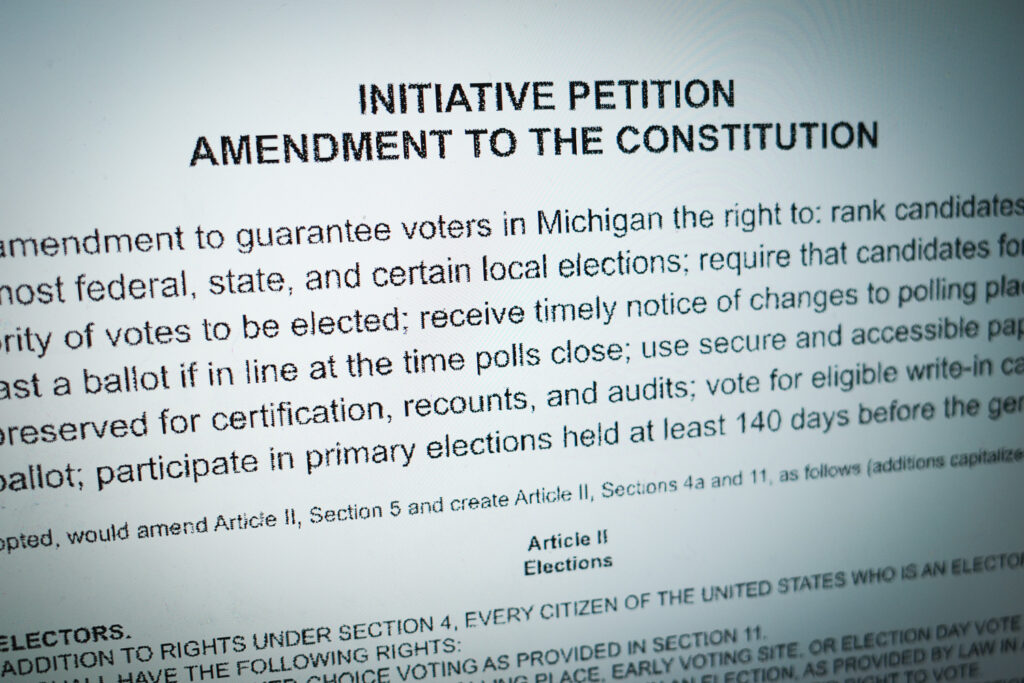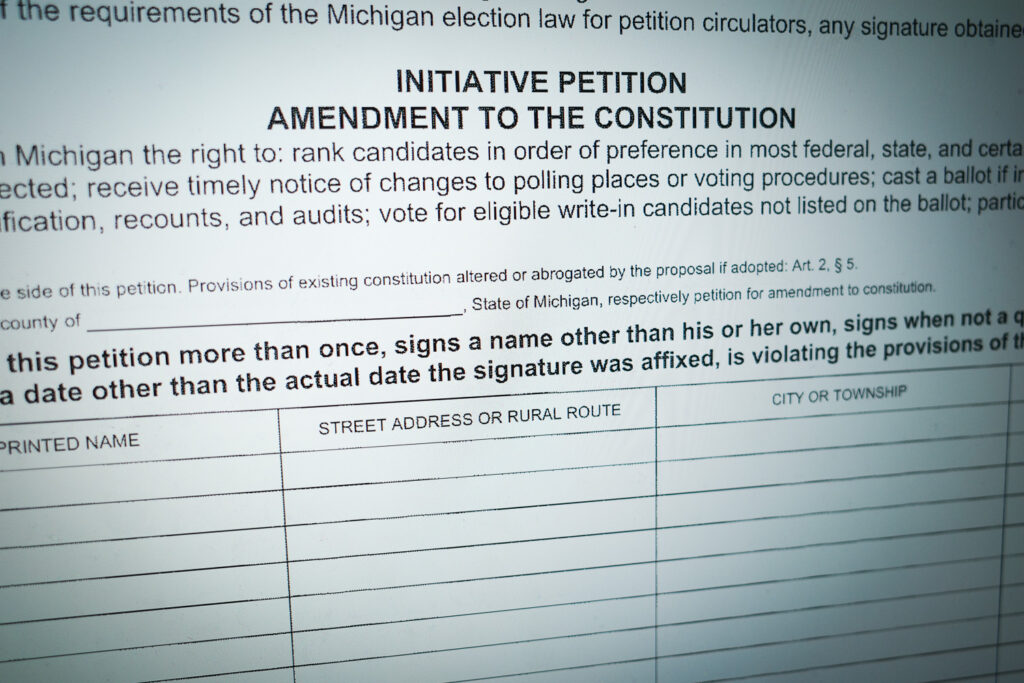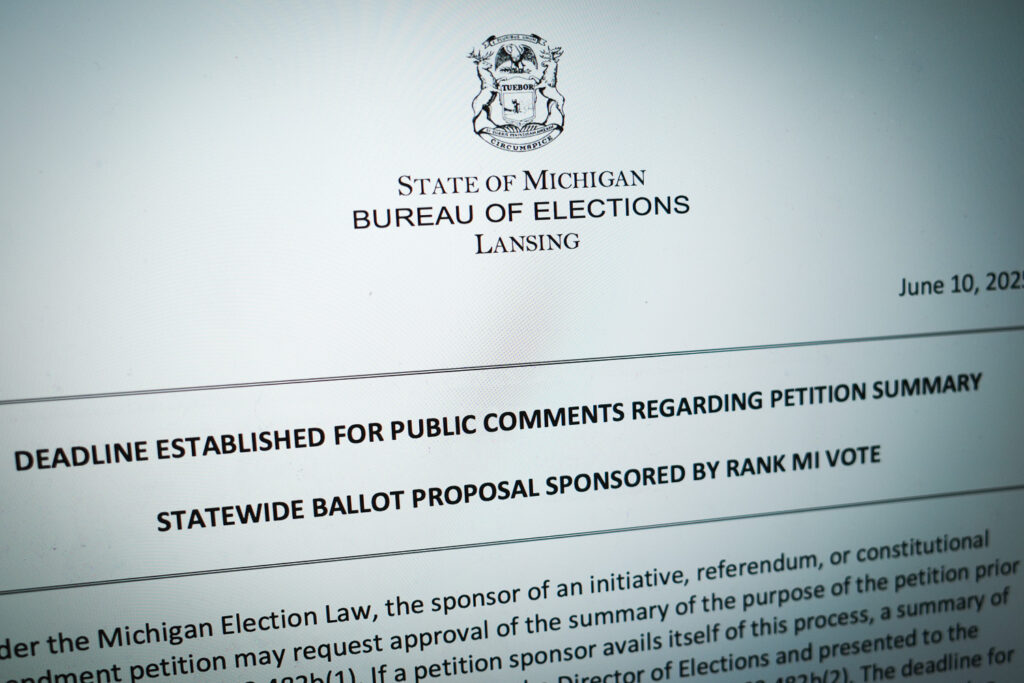Over the past decade, we’ve watched national political organizations—many with no real connection to our state—target Michigan with ballot proposals designed to fundamentally rewrite how we conduct elections. Now, they’re back with a new scheme: ranked choice voting (RCV).
Disguised as “common-sense reform,” this proposal is anything but.
The group behind the current proposal submitted their 100-word summary to the Board of State Canvassers this week. If approved, this will be what voters see when they’re asked to sign the petition—and potentially what appears on the ballot. It’s cleverly written to sound fair and noncontroversial.
But make no mistake: This proposal is not about improving our elections—it’s about enshrining ranked-choice voting into our Constitution and overhauling how we elect leaders in Michigan. Just like previous Constitutional amendments, this is a Trojan horse.

Voters who supported past election proposals may not realize how drastically those measures rewrote the rules. We can’t afford another wave of regret after the fact. This time, we need to stop this proposal before it gains traction.
So why are election officials and others across the political spectrum raising concerns and voicing opposition to ranked choice voting?
- It’s confusing: Voters are asked to rank candidates (1st, 2nd, 3rd, etc.). If no one gets a majority of first-choice votes, the lowest candidate is eliminated and their votes are reassigned based on next rankings. This repeats until someone wins—making the process hard to follow and easy to misunderstand.
- It disenfranchises voters: If a voter doesn’t rank every candidate or makes a mistake while filling out the ballot, their vote is oftentimes discarded in the process known as “ballot exhaustion”—effectively silencing their voice.
- It delays results and eliminates Michigan’s ability to conduct traditional hand recounts: Under our current system, recounts are straightforward and transparent. RCV introduces multi-round computerized tabulations that make hand recounts nearly impossible, undermining election integrity and trust.
- It violates Michigan’s Constitutional right to vote straight party: Enshrined by voters in 2018 under Proposal 3, the right to cast a straight-ticket vote is a protected constitutional provision. RCV would eliminate this option in partisan races, potentially conflicting with existing constitutional rights.
Our current system is not perfect, but it is clear, fairly transparent, and easy to understand. Voters know that when they cast a ballot, their vote is counted—one person, one vote. RCV undermines that clarity and confidence.
What’s especially telling is that opposition to RCV isn’t just coming from conservatives. There are voices on both the Left and the Right who recognize that this proposal is wrong for Michigan.
Several individuals who were involved in past progressive voting-reform efforts are speaking out against RCV because they understand the damage it can do to our elections.

We don’t need to make this a partisan fight. We need to make it an actual common-sense one.
Michigan voters deserve simplicity, transparency, and trust in our elections—not confusing ranking systems, delayed results, and ballots that don’t get counted.
Michigan has been targeted by national groups before, and we’ve suffered the consequences. Let’s not fall for it again.
Meghan Reckling is a veteran political strategist, former county GOP chair, and co-founder of Victory Field Operations, with over 25 years of experience in Michigan politics, campaigns, and grassroots leadership.



